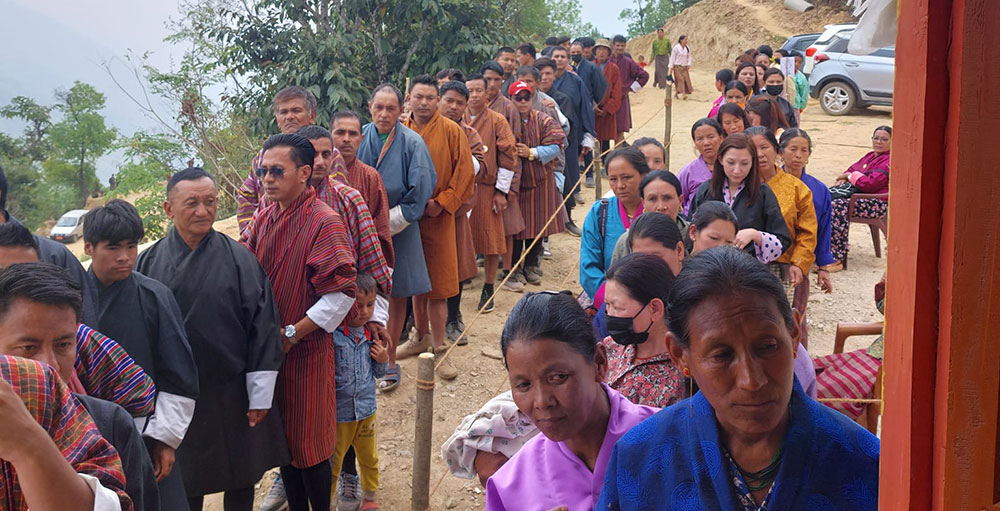… expects NC elect to deliver it to them
Choki Wangmo | Dagana
As an agrarian society, the annual average household income from agriculture in Dagana is Nu 73,040. Every year, they lose a major chunk of their produce to wildlife depredation and natural disasters.
As pledged, most of the voters from Dagana now want their National Council (NC) elect, Birendra Chimoria, to ensure that the crop compensation mechanism comes through during his five-year term in the House of Review.
The NC elect who won with 7,143 votes—1,846 postal ballots and 5,297 electronic voting machine (EVM) votes—during his campaign pledged to recommend policy for agriculture produce enhancement, protection, and compensation.
A resident of lower Gozhi, Ugyen Wangchuk, said that farmers face challenges of crop damage from natural disasters. “I hope the NC elect fulfils the pledges. We need policy support to ensure that farmers are protected.”
Most of the incidents of crop damage are reported from the three gewogs of Nichula, Lhamoidzingkha, and Karmaling in Lhamoidzingkha Drungkhag. Residents say that the human-wildlife conflict with elephants had increased in recent years. Since 2014, three major animal attacks were reported in the drungkhag with fatalities.
Residents said that the elephants have started rampaging through areca nut orchards even. Almost 70 percent of the population depend on areca nut for income.
The dzongkhag is prone to natural disasters such as windstorms and rainstorms. For example, last April, heavy rain and windstorms damaged more than 167 acres of maize fields in Karmaling and Nichula gewogs.
Nichula residents want a motorable bridge over Sunkosh River, a highway connecting Lhamoidzingkha with Sarpang, and a motorable bridge over Yarphelling Chiwog.
Without a motorable road connection, the gewog remains cut off from other towns during monsoon. It is the only gewog without a motorable road connection in the dzongkhag. They currently use a 220-metre suspension bridge for daily commute.
A college student from Lhamoidzingkha, Kelden Dorji, wants better infrastructure in the town, including the upgradation of the middle secondary school to high school. “It would benefit the local residents,” he said.
Another voter from Gozhi said: “Dagana has remained slow in growth, and remote in spite of its rich diversity of ethnic groups, environment for tourism and natural resources.”
He said that Lhamoidzingkha is a gateway for Dagana to enhance economic growth in the region. “I expect our NC representative to stay involved and close to the local people for economic growth, development, and employment in reviving the economy.”
Chimoria, with a Masters in Sports Administration, pledged to propose a policy to support domestic tourism in Dagana and open neighbouring dzongkhags along the Indian border as tourist destinations.
However, a woman from Kana Gewog said that she now expects nothing much from the elected leaders. “In the past, I used to get excited.”
She said that due to a lack of resources, most of the pledges remain unfulfilled. She travelled from Paro to Dagana to vote.
Of the 27,601 voters in the dzongkhag, 15,678 voted, out of which 10,449—5,459 males and 4,990 females—voted through EVM.


